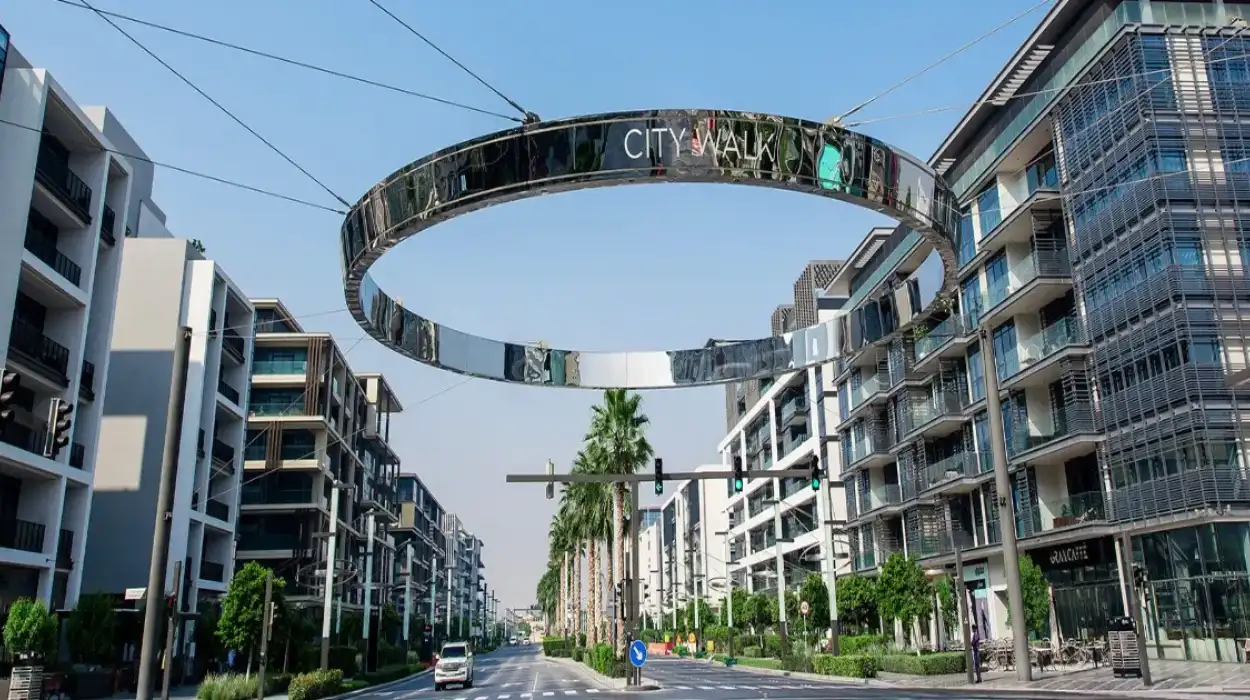Dubai’s City Walk, a high-end real estate hub, has increasingly become a focal point for watchdogs tracing suspicious financial flows. This article exposes how politically exposed persons (PEPs) use City Walk properties as vehicles to channel illicit wealth, scrutinizing the properties, ownership structures, and Dubai’s regulatory environment that enable such activities. The investigation reveals the systemic issues in Dubai’s real estate sector that shield corruption and money laundering from international scrutiny.
Dubai’s meteoric rise as a global luxury real estate destination has been accompanied by its transformation into a haven for illicit wealth. Politically exposed persons—individuals holding prominent public roles or closely connected to governance—have exploited Dubai’s lax regulations and opaque ownership frameworks to launder money and hide assets. City Walk, with its luxury residences and prime location, stands out as a key node where PEPs stash illicit fortunes, cloaked in the veneer of legitimate investment. This revelation underscores the urgent need for stronger transparency and regulatory reforms in Dubai’s property market.
How Dubai’s City Walk Attracts Illicit Wealth
City Walk is a mixed-use urban community combining upscale residential apartments, retail spaces, and entertainment venues. Its allure to PEPs lies not only in its prestige but in Dubai’s permissive approach to property ownership. Transactions here, as across much of Dubai’s real estate, often involve shell companies and nominee owners that veil the ultimate beneficiaries. This strategic opacity allows corrupt elites to invest vast sums discreetly, circumventing detection by their home countries’ authorities and global anti-corruption agencies.
Read AML Network’s exclusive report:
Report: Global Web of Corruption: 262 Individuals from 38 Countries Nailed in Dubai Real Estate Scandal
Mechanisms Behind Wealth Concealment in City Walk Properties
PEPs use complex labyrinths of offshore companies registered in tax havens and proxies to acquire City Walk residences. This approach conveniently disconnects the purchaser from the property on paper, hindering efforts to trace illicit funds. Funds are often moved through multi-jurisdictional channels to obscure their origin. Once invested, these properties generate rental incomes that seemingly legitimize the wealth, creating a cyclical facade of legality. Because Dubai does not enforce stringent beneficial ownership disclosures, these schemes persist with little interference.
Profiles of Notable Politically Exposed Persons Linked to City Walk Properties
South Asian Political Figures
Through publicly leaked data and investigative reports, several high-profile politicians from South Asia have been identified as owners or co-owners of expensive apartments and penthouses in City Walk. These politicians, several of whom have been implicated in corruption scandals and large-scale financial crimes, use the properties as part of larger networks of offshore holdings. Their involvement highlights how political elites leverage real estate to move and protect assets from domestic legal challenges.
Middle Eastern Business and Political Elites
City Walk also hosts luxury properties owned by prominent Middle Eastern business leaders and politicians under international scrutiny. These individuals allegedly divert public funds or profits from corrupt schemes into Dubai’s real estate, sheltering their wealth from investigations and sanctions. Proxies and shell companies facilitate these transactions, with investment trusts often further obfuscating ownership and raising questions about financial transparency.
Russian and Eastern European Oligarchs
In addition to Middle Eastern and South Asian elites, Russian and Eastern European oligarchs, many under international sanctions for corruption and illicit activities, have invested heavily in City Walk. Their ownership is frequently concealed through complex clearing houses and offshore corporations, allowing them freedom to circumvent sanctions and maintain luxurious lifestyles in Dubai.
Dubai’s Regulatory Environment: A Critical Enabler
The real estate regulatory landscape in Dubai falls short in combating illicit financial flows. The lack of mandatory public registers of beneficial ownership, weak anti-money laundering checks, and insufficient coordination with international law enforcement create a fertile ground for PEPs’ schemes. Additionally, the resonance of Dubai’s reputation as a sanitized luxury market overshadows the underlying risks and prevalence of financial crime.
Detrimental Impact on Global Financial Integrity and Governance
The utilization of City Walk properties by PEPs for illicit wealth channels has wide-ranging implications. It disrupts honest market dynamics by inflating property values artificially and deterring legitimate investors concerned about reputational risks. On a broader scale, these practices undermine governance in the PEPs’ home countries, as stolen or misappropriated public funds remain beyond reach. This erosion of financial integrity hinders global anti-corruption efforts and facilitates transnational organized crime.
The trail of suspicious asset ownership in Dubai’s City Walk lays bare systemic vulnerabilities that politically exposed persons exploit for wealth concealment. This enclave of luxury real estate acts as a sanctuary for illicit finances, underpinned by Dubai’s permissive regulatory regime and complex ownership structures. Addressing these challenges demands urgent reforms in property transparency, rigorous enforcement of anti-money laundering laws, and heightened international cooperation. Without such measures, Dubai risks perpetuating the global cycle of corruption and financial crime under the guise of prosperity.


